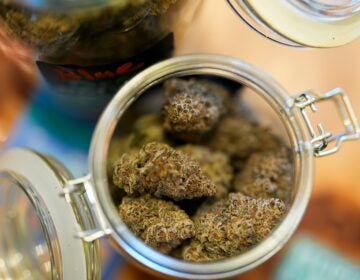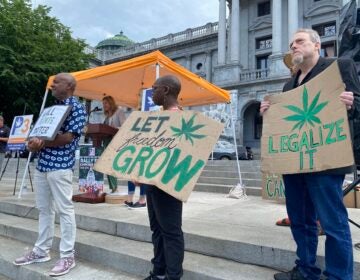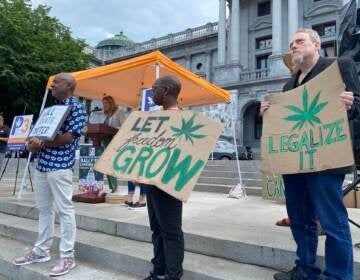Recreational marijuana laws were put on hold by N.J. and N.Y. What’s that mean for Pennsylvania?
Key lawmakers say what does or doesn’t happen in New York and New Jersey doesn’t affect their thinking on what should happen here.
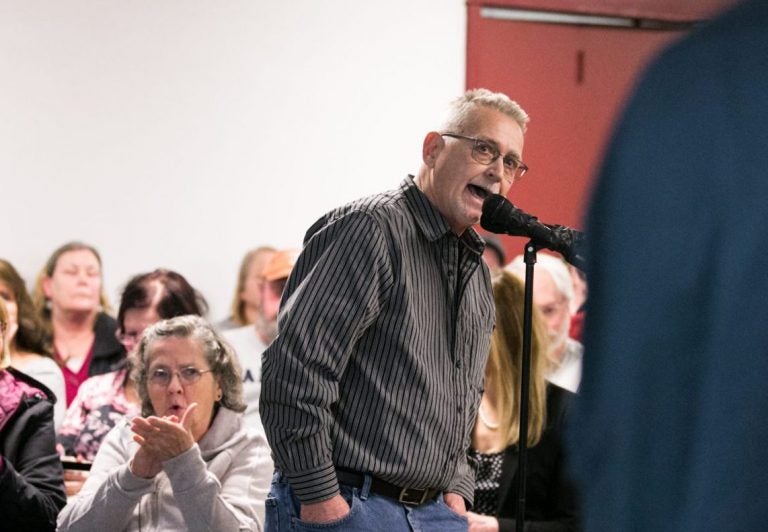
Lt. Gov. John Fetterman takes his statewide listening tour to gauge Pennsylvanians’ interest in legalizing marijuana to the American Legion Post 109 in Mechanicsburg. (Sean Simmers/PennLive)
This PennLive article appeared on PA Post.
—
Pennsylvania’s neighbors to the north and east were seemingly hot on the trail of legalizing marijuana and it didn’t go unnoticed by Gov. Tom Wolf.
The strong interest in legalizing recreational cannabis coming out of New York and New Jersey was cited as a reason why Wolf sent Lt. Gov. John Fetterman on a statewide listening tour to hear what Pennsylvanians thought of the idea.
Fetterman, a legalization proponent, completed his tour on May 19. That coincidentally was right around the time reports were coming out that New York lawmakers’ enthusiasm about legalization had waned and in New Jersey, immediate efforts for pursuing it had changed course.
Lawmakers in New Jersey now are pushing ahead with expansion of its medical marijuana program and making plans for a binding referendum on recreational uses of pot to go on the ballot in November 2020.
Fetterman is expected to release a preliminary report on what he learned from his tour of Pennsylvania’s 67 counties within the next week or two, said Christina Kauffman, his spokeswoman.
His final report on the feedback he gathered about various issues related to legalization and current law won’t be ready for a few months. But in the end, Wolf spokesman J.J. Abbott said, “the listening tour reflects Governor Wolf’s belief that this process should be driven by the people of Pennsylvania and what direction that they want the state to proceed. That has not changed.”
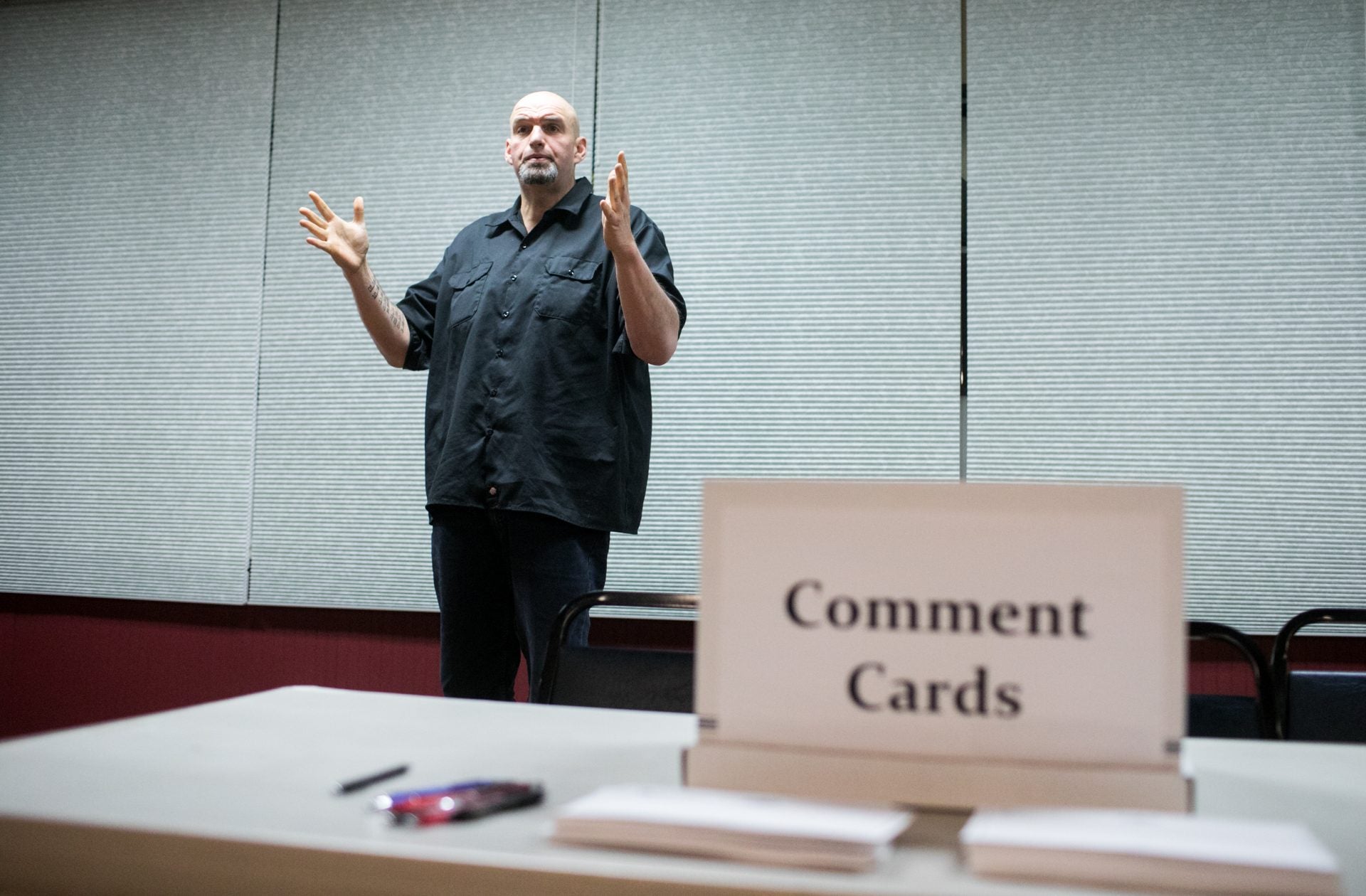
So despite what the neighboring states decided to do with this issue, Abbott said the governor believes that Pennsylvania still needs to explore the issue seriously.
“The reality is that these states could still legalize marijuana or expand access significantly, which would impact Pennsylvania communities on these borders,” Abbott said.
Meanwhile, key Pennsylvania lawmakers on both sides of the issue say what does or doesn’t happen in New York and New Jersey with legalization issue doesn’t affect their thinking on what should happen here.
“I never thought this was something we would take up this year anyway,” said Senate Majority Leader Jake Corman, R-Centre County. “This just reinforces that.”
“Legalizing federally prohibited drugs is not a top priority” for the House either, said Mike Straub, a spokesman for House Majority Leader Bryan Cutler, R-Lancaster County.
Despite the Republican legislative leaders’ lack of interest and the loss of momentum in the neighboring states for legalization, it hasn’t deterred some of Pennsylvania’s strongest cannabis champions.
Sen. Sharif Street, D-Philadelphia, said he and Sen. Daylin Leach, D-Montgomery County are taking a less aggressive approach to legalization than the rush job that New York and New Jersey seemingly tried to pull off.
“We have had more of a sustained drawn-out process to bring stakeholders in. So I think when we get to the point where we’re ready to move forward we’re likely not to have some of the challenges that they have,” Street said. “We tend to be a little more deliberative in our process but I like to think in the end, we’re pretty good at getting it right.”
He cited the state’s incremental entrance into legalized gambling arena as similar to the path he envisions the state will likely take when it comes to this issue, giving Pennsylvanians time to psychologically adjust to it.
“I think as Pennsylvanians sort of become more familiar with cannabis and get a greater understanding of just how we would envision a Pennsylvania program rollout, the likelihood of us moving to full legalization of adult use becomes greater,” he said.
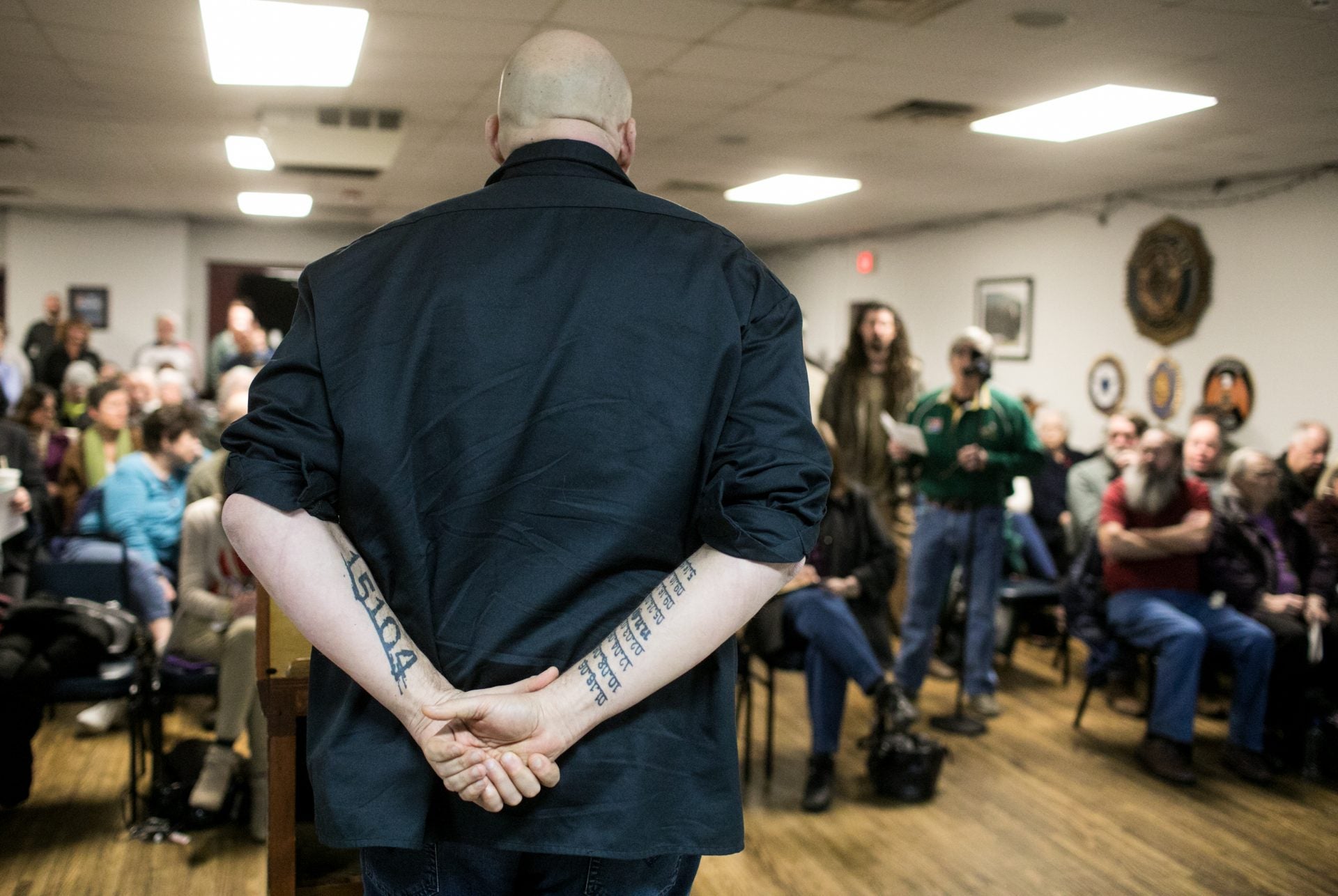
In the House, Rep. Jake Wheatley, D-Allegheny County, who introduced his cannabis legalization bill on Jan. 3, said he too is unfazed by what is happening on the legalization front in the other states. He is more concerned about the discussion surrounding the issue happening at the federal level.
“If Pennsylvania waits for the national government to do this then we’ll be forced kind of to respond to whatever framework they decide on for this new industry,” Wheatley said.
People he has spoken with believe it’s inevitable that the federal government will declassify marijuana as a controlled substance or at least make it so states that have passed legalization for adult use can be protected from federal intervention.
“If we all believe it’s coming then it’s just a matter of time,” he said. “So it’s my belief that Pennsylvania should begin the conversation.”
Corman, however, believes the best course of action for Pennsylvania is to monitor the experience of states that have already made the leap.
“There certainly are mixed results from those states so I’m not surprised [New York and New Jersey] ran into roadblocks that they couldn’t get past,” he said. “I think Pennsylvania ought to sit back and allow the medical marijuana industry to begin to take hold and focus our attention on that.”
That’s where the House Republican leaders are on this issue as well. Straub said, “We remain committed to successfully and safely expanding the state’s medical marijuana program.”
Time will tell if and when that view changes, Corman said.
“Different policy makers over the years will make different decisions,” he said. “But I certainly think given the experience of New York and New Jersey, it’s certainly nowhere around the corner for us in Pennsylvania and shouldn’t be for the distant future.”
WHYY is your source for fact-based, in-depth journalism and information. As a nonprofit organization, we rely on financial support from readers like you. Please give today.


